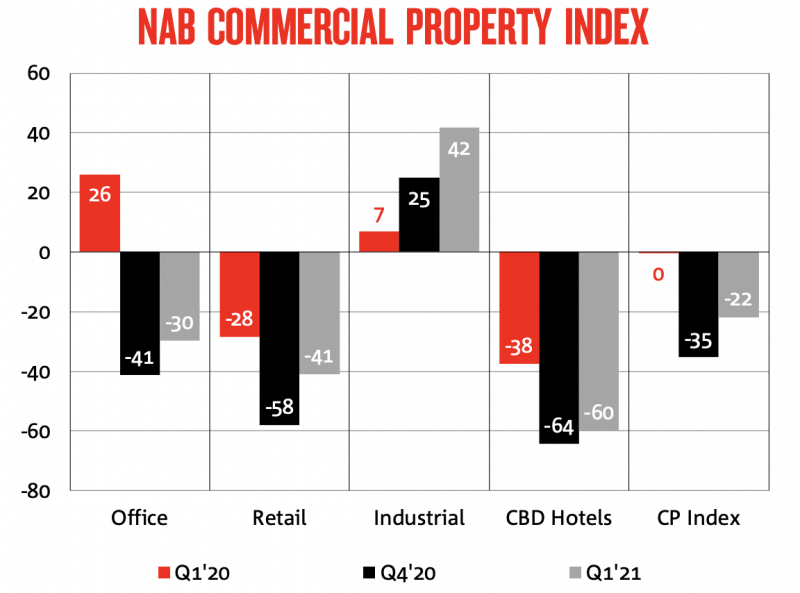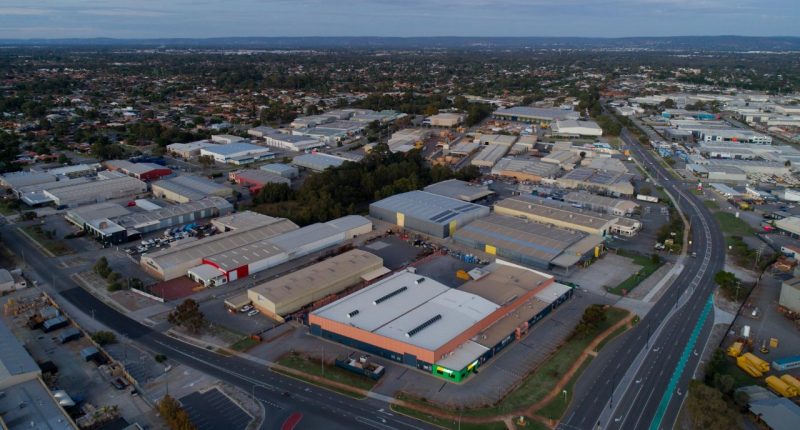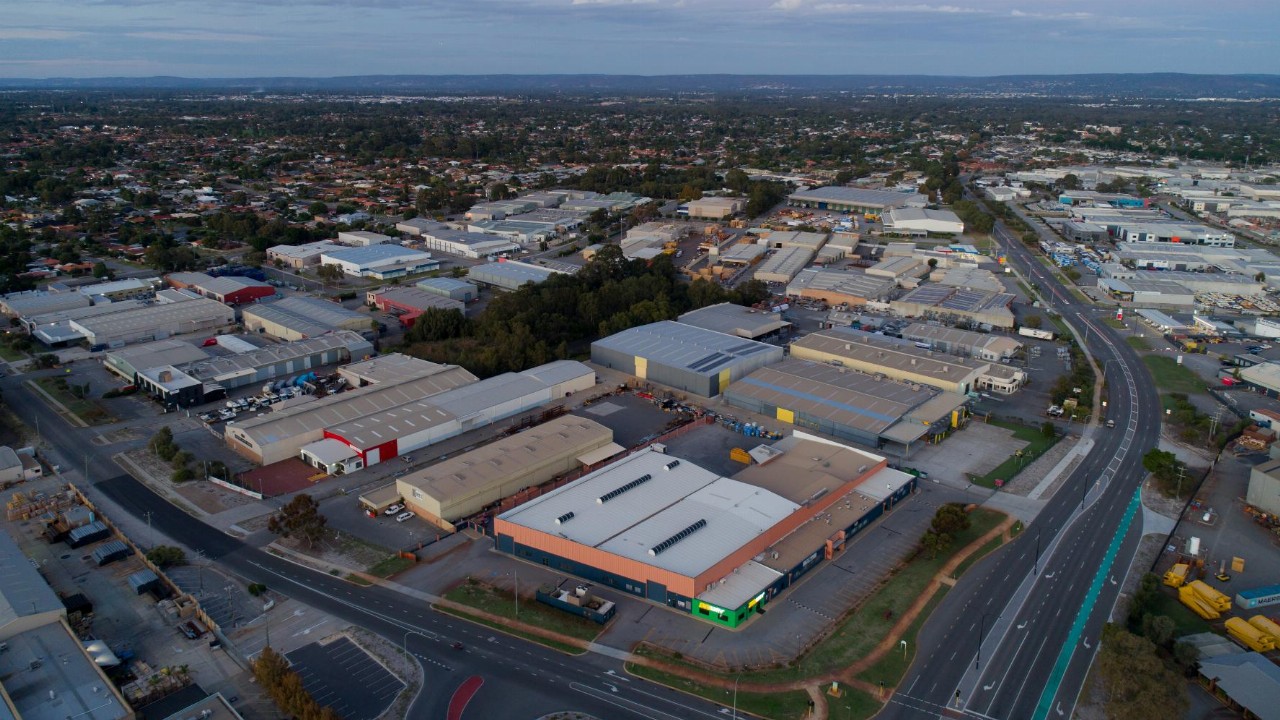- Despite the Australian economy’s robust growth, the local commercial property market’s recovery has been sluggish and sentiment remains stunted
- The NAB Commercial Property Index rose for the third quarter in a row in the March quarter poll, but it still registered a negative result
- Overall market sentiment improved across the nation but remained weak in all states except Queensland, with Victoria lagging behind other states by a significant margin
- Property experts in the survey expect capital prices to slip in all segments over the next one to two years, with the exception of industrial
- In positive news for the commercial property sector, an above-average 86 per cent of developers expect to begin new projects within the next 18 months
Despite the Australian economy’s robust growth, the local commercial property market’s recovery has been sluggish and sentiment remains stunted.
The NAB Commercial Property Index rose for the third quarter in a row in the March quarter poll, but it still registered a negative result (-22 points), putting it below the survey average (-1 pt).
The survey found that across all commercial property sectors, sentiment increased but remained rather diverse, with the industrial market being the only sector to successfully weather COVID’s challenges. In the first quarter, industrial sentiment reached a survey peak of +42 points.
Sentiment improved in the office and retail sectors but remains low. The CBD hotel sector’s sentiment improved somewhat, but despite the many problems facing the tourism industry, it continued to underperform the wider economy, according to the survey.
Overall market sentiment improved across the nation but remained weak in all states except Queensland, with Victoria lagging behind other states by a significant margin.
In the next 12 months, market conditions are forecasted to be negative in VIC, NSW, SA and NT but favourable in QLD and WA. Longer-term morale is positive in all states and territories except SA and NT, with WA having the highest level of confidence.
Property experts in the survey expect capital prices to slip in all segments over the next one to two years, with the exception of industrial, where the average forecast has risen to 3.1 per cent in the next 12 months and 3.5 per cent in the next two years.
In the next 12 months, the office market is forecasted to drop -0.4 per cent but rise 0.3 per cent in the next two years. Retail prices are expected to plunge by -1.4 per cent and -0.5 per cent, according to the survey.
The survey found that CBD hotels have the lowest expectation amongst the surveyed and are lower than forecasted in Q4 20.
In Q1, the national office vacancy rate reached a new high of 9.8 per cent, according to the report. It increased in all states — except WA — and is projected to stay high at 9.8 per cent in a year and 8.8 per cent in two years.
The survey also shows that developers are shifting their focus from residential to commercial construction, with just 41 per cent of developers targeting residential projects, the lowest percentage since Q1 2016 (38 per cent) and well below the survey average (53 per cent).
In positive news for the commercial property sector, respondents said financing conditions are improving and an above-average 86 per cent of developers expect to begin new projects within the next 18 months (up from 68 per cent during COVID’s peak in mid-2020).








